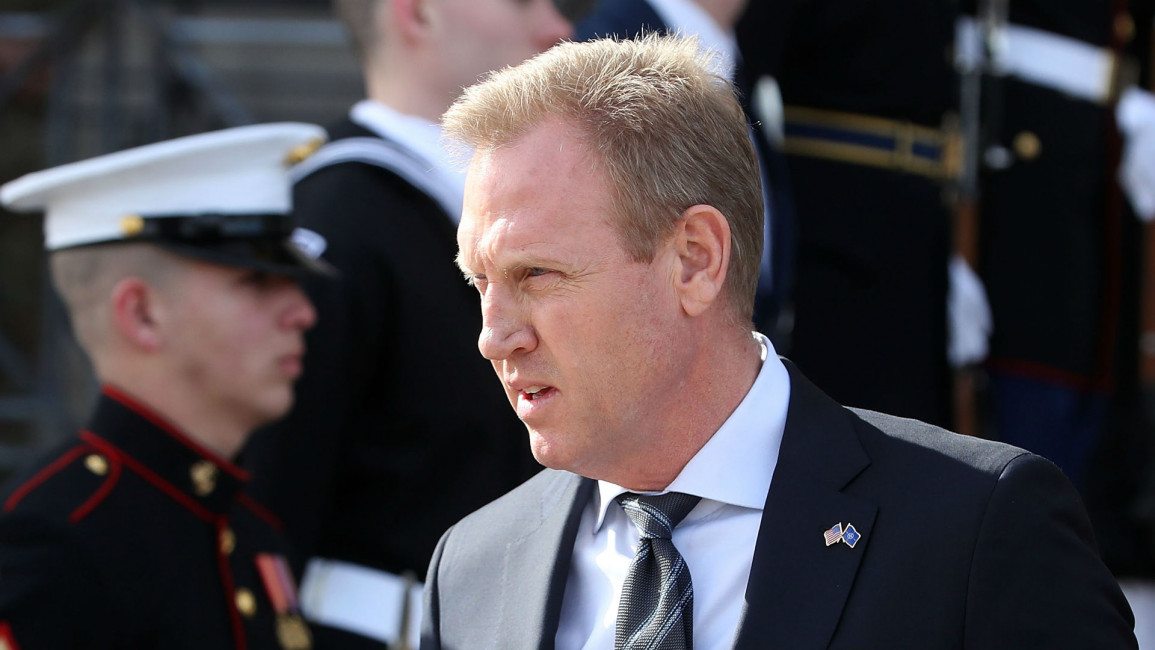US acting defence chief Patrick Shanahan in Iraq to fix Trump's 'Iran watch' blunder
Acting US defence chief Patrick Shanahan has held talks on the sensitive issue of American troop presence in Iraq during a surprise visit to Iraq's capital on Wednesday.
Shanahan's visit comes as the US begins a military withdrawal from Syria while President Donald Trump angered many in Iraq by saying American troops would stay at the country's Al-Asad airbase, northwest of Baghdad, to keep an eye on Iran.
"We spent a fortune on building this incredible base. We might as well keep it," Trump said in the CBS interview.
"One of the reasons I want to keep it is because I want to be looking a little bit at Iran because Iran is a real problem," he added.
The acting defence secretary's visit to Iraq comes after a trip to Afghanistan where talk of an imminent troop withdrawal has also been made.
On his first foreign tour since taking office last month, Shanahan held talks with Prime Minister Adel Abdel Mahdi and leading officers, as well as Lieutenant General Paul LaCamera, the commander of anti-IS coalition forces.
He said his meeting with Iraq's premier had "a very good energy", Shanahan said as he went to Brussels where he will attend a NATO summit.
"I made very clear that we recognise their sovereignty, their focus on independence and that we are there at the invitation of the government," he added.
Shanahan and Abdel Mahdi spoke about Iran "indirectly... in the context of Iraq's independence", he said, adding that the Iraqi premier had stressed the need for Baghdad to maintain good relations with both its neighbours and the US.
Washington was also pressing its allies to repatriate their nationals captured and taken prisoner during the fight against IS in Iraq and Syria, the official said, something resisted by some such as the UK.
"We think coalition members need to take responsibility for their citizens who are fighters. It's been a message we've delivered time and time again. And we are seeing hopeful progress," he said.
Trump drew a stern rebuff from Iraqi President Barham Saleh, when he said during a television interview that the use of Iraq as a base against a third country violated its constitution.
This sparked calls from pro-Tehran factions within the Baghdad government and powerful Iran-backed militias that the US should withdraw from the country.
These calls are likely to intensify as American troops withdraw from Syria, following Trump's shock announcement in December.
Most of the US' allies and senior figures within Trump's own administration condemned the announcement and it prompted the resignation of Shanahan's predecessor, Jim Mattis.
The US-backed Syrian Democratic Forces are embarking on the final push against the Islamic State group, but experts fear a new jihadi insurgency following the American withdrawal.
As for his talks on Wednesday in Brussels, Shanahan said he would brief his "counterparts here at NATO on my perceptions of Afghanistan, Syria and Iraq and what the opportunities are for the coalition".
He said he would discuss "where we can take advantage of the opportunities there... in terms of the potential in northeast Syria to establish an observer force" to ensure stability in the longer term.



